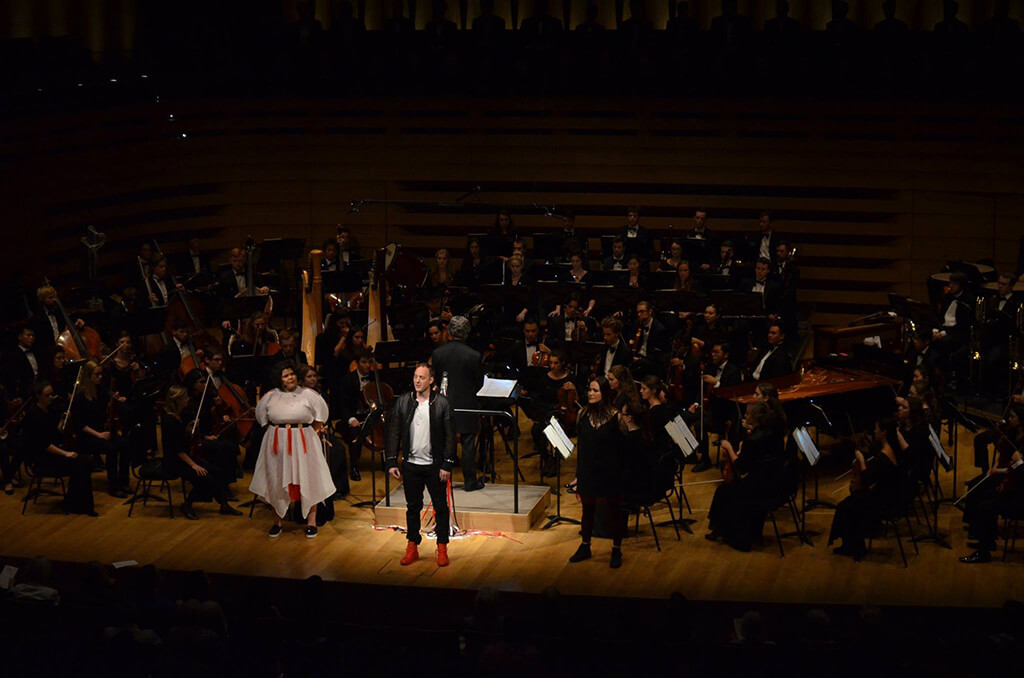
Tasked with acknowledging the Canadian sesquicentennial, the National Youth Orchestra of Canada this year has been touring the country alongside the National Youth Choir, the latter who made their final guest appearance on this tour last night at Koerner Hall. NYO is also mounting The Unsilent Project, a words-and-music presentation dedicated to the First Nations experience and inspired by the poetry of the late Piikani Blackfoot writer Zaccheus Jackson. The programme Tuesday at Koerner Hall had its highlights but also left me reflecting on the difficulty of wedding spoken text with music.
Not that The Unsilent Project, performed after intermission, lacks the latter. It opens with an evocative orchestral essay in rising and broadening sonorities by Ian Cusson, a Toronto composer of Métis and French-Canadian descent. His contribution was equated with A Child’s Bright Eyes, while Juliet Palmer, a Torontonian born in New Zealand, supplied the score for Invicta, as read by three First Nations spoken word artists.
Whether the rapid-fire readings (with some choreography) enhanced the effect of the music is a matter of personal perspective. Happily, Jackson’s verse is striking and imaginative (“I would call all the world’s water traitor”) as well as polemical. If the intention was to communicate the unresolved state of Aboriginal affairs in Canada, mission accomplished.
The final words of Invicta, which conveyed (to my ears) a soupçon of hope, intersected with Strauss’s Death and Transfiguration. Jonathan Darlington, a high-energy British conductor, led the tone poem from quiet beginnings (with hands alone) to a stirring climax (armed with a baton). This was a youthful and dramatic reflection on death, if such a thing can be. Woodwind solos were spot-on and the brass entries had a heroic ring. Strings were handsomely balanced. Canada at 150 remains a rich source of musicianship.
Before intermission the orchestra (with players otherwise configured, the NYO being a democratically-minded ensemble) dealt with another biggie, Ravel’s La Valse. If the performance was missing something in hypnotic largesse, there was compensation in the transparent texture Darlington (a balletic figure on the podium) encouraged.
Choir and orchestra were heard together in O Canada (very impressive) and Nänie, a moving motet by Brahms that was finely wrought but might have done better with a larger chorus. The singers (numbering fewer than 40) produced an admirably pure a cappella sound under Timothy Shantz in Come to the Road by Zachary Wadsworth. A piece by James Rolfe was less compelling. Ditto a choral arrangement of Elgar’s Nimrod. The tone was full in the traditional NYO post-concert singsong that brought the choristers on stage with the players. Sound projects better from the Koerner stage than the choir loft.
This concert, the fourth of 12 in the orchestra’s trans-Canada tour, was a presentation of Toronto Summer Music.
Correction, July 26, 2017, 4:31 p.m.: Jonathan Darlington’s name has been corrected, and the National Youth Choir’s participation as guest artist was clarified.



